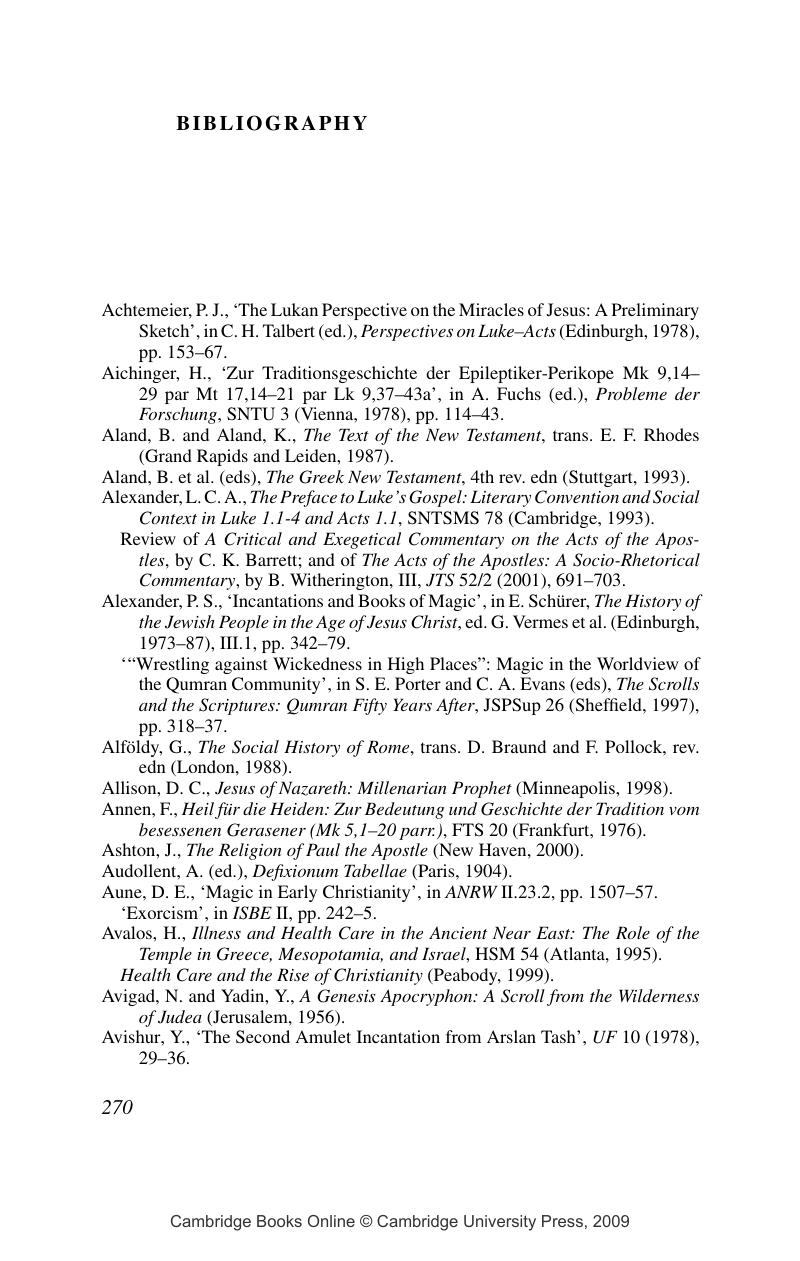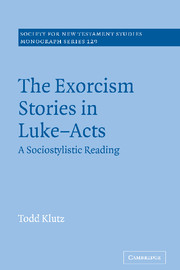Book contents
- Frontmatter
- Contents
- Acknowledgements
- List of abbreviations
- Introduction
- 1 Sociostylistics and the exorcism in Luke 4.33–37
- 2 Purity and the exorcism in Luke 8.26–39
- 3 Discipleship and the exorcism in Luke 9.37–43a
- 4 Paul, Jewish identity, and the exorcism in Acts 16.16–18
- Conclusion
- Bibliography
- Index of sources discussed
- Index of names and subjects
- References
Bibliography
Published online by Cambridge University Press: 22 September 2009
- Frontmatter
- Contents
- Acknowledgements
- List of abbreviations
- Introduction
- 1 Sociostylistics and the exorcism in Luke 4.33–37
- 2 Purity and the exorcism in Luke 8.26–39
- 3 Discipleship and the exorcism in Luke 9.37–43a
- 4 Paul, Jewish identity, and the exorcism in Acts 16.16–18
- Conclusion
- Bibliography
- Index of sources discussed
- Index of names and subjects
- References
Summary

- Type
- Chapter
- Information
- The Exorcism Stories in Luke-ActsA Sociostylistic Reading, pp. 270 - 288Publisher: Cambridge University PressPrint publication year: 2004



